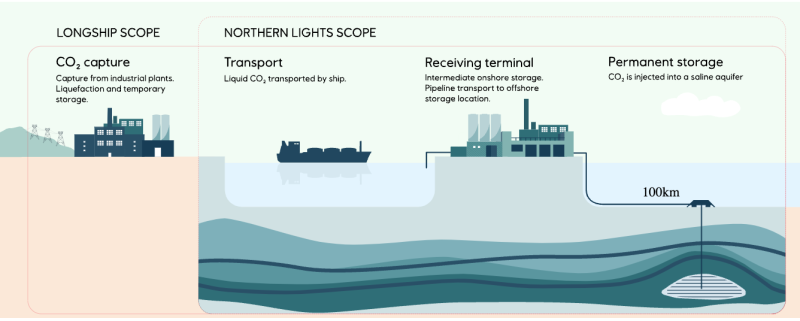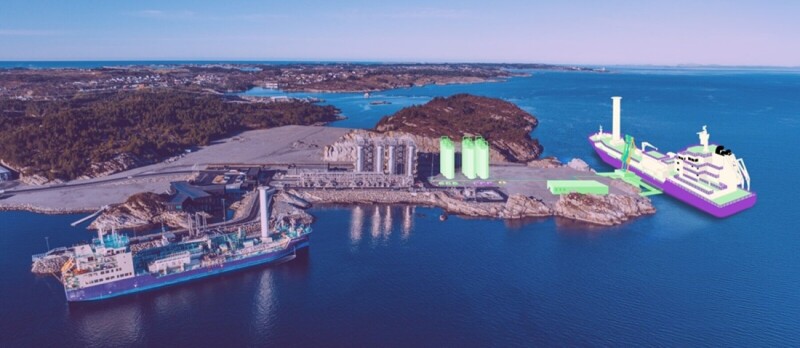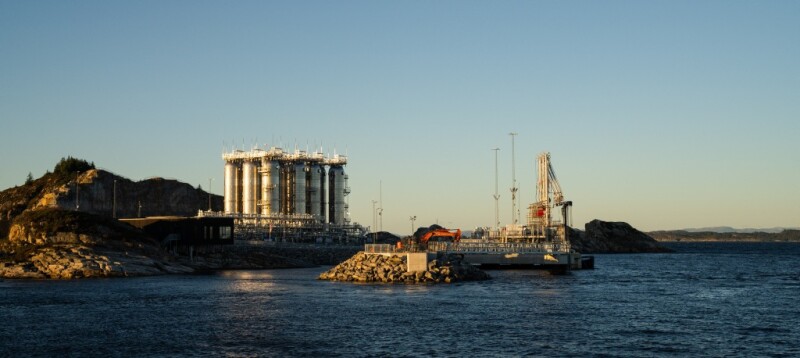The Northern Lights carbon capture and storage (CCS) project has stored its first volumes of CO2 in the Aurora reservoir 2600 m below the Norwegian North Sea.
Participants in the joint venture (JV) announced first CO2 storage from the first phase of the CCS project on 25 August. The CO2 is transported via ships from Heidelberg Materials’ cement factory in Brevik, Norway. The CO2 is then offloaded and transported through a 100-km pipeline and injected into the Aurora reservoir under the seabed of the North Sea in exploitation license EL001.
The $710 million Phase 1 of the Northern Lights project is part of Longship, the Norwegian government’s CCS project integrating the CCS chain from capture through transport to storage.
In June, the first CO2 shipment arrived at the Northern Lights facility in Øygarden, where it was transferred to storage tanks until it was piped out for injection in the reservoir.

Tim Heijn, managing director for the Northern Lights JV, said in a news release the JV’s ships, facilities, and wells are all now in operation.
The Northern Lights JV is equally owned by Equinor, Shell, and TotalEnergies. Equinor, as the technical service provider, was responsible for the construction of the Øygarden facility and the offshore facilities on behalf of the Northern Lights JV and will also have operational responsibility for the CO2 plant.
Equinor CEO Anders Opedal said in a news release that governmental support and collaboration with partners has taken the project from concept to reality.
“This demonstrates the viability of carbon capture, transport, and storage as a scalable industry,” he said.
The Northern Lights Phase 1 capacity of 1.5 million tonnes per year (Mtpa) of CO2 is fully booked. For the remainder of 2025, the project will transport and store Phase 1 CO2 from Norway, while CO2 volumes from Denmark and the Netherlands are expected to be added in 2026.
In March the partners reached final investment decision for the $713 million Phase 2 of the development, which is expected to increase transport and storage capacity to a minimum of 5 Mtpa of CO2 in 2028.

The expansion of Northern Lights, approved by the government in June, builds on existing infrastructure and includes additional onshore storage tanks, a new jetty, and additional injection wells. Phase 2 development is underway.


